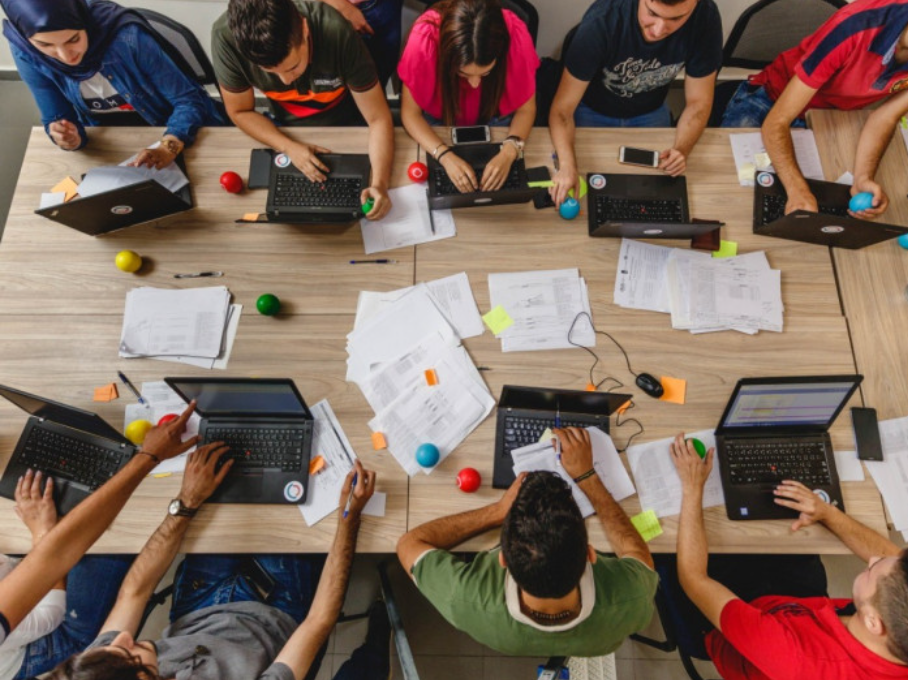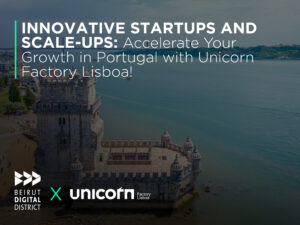The photo used was taken at B.O.T‘s* premises.
Over the last few years, prevalent trends have emerged on economic, social and environmental fronts. These shifts have notably impacted all facets of society, starting with behavioural shifts amongst consumers and ultimately, how businesses are run. Accordingly, many companies have taken note, and transformed the way they operate, leaning towards more impact-driven models. Yet, many companies are falling short of capturing their impact, measuring it and communicating it to the stakeholders that matter most.
To understand these shifts on a deeper level, along with their influence on businesses and what entrepreneurs can do to create a bigger social impact, BDD’s team sat with Michelle Mouracade (MM), Alfanar‘s Country Director for Lebanon, to learn more.
BDD: Firstly, what is the value of becoming an impact-driven business?
MM: For entrepreneurs, there has never been a more relevant time than right now to launch or to transform their company into an impact-driven business. The benefits range from marketing to HR and from sales to fundraising – not to mention the most important argument which is giving back to society.
Over the last decade, there has been an important behavioural shift in what people buy and who they wish to work for, which has now been exacerbated following the COVID-19 pandemic. Studies have indeed shown that when a consumer is faced with two equivalent products, 90% of the time they prefer to buy the one from an impact-driven business, even if it is more expensive.
While in terms of attracting and retaining talent, today employers must offer meaning, especially for the new generation.
BDD: Do these shifts have an impact on the ability for impact-driven businesses to attract investors?
MM: Yes. According to reports from Social Enterprise UK, social enterprises regularly outperform regular businesses across almost all indicators, while generating a wide range of economic and social benefits that boost the economy. They are therefore becoming more attractive investments than regular SMEs.
Also, the size of the global impact investing market is USD 715B according to the Global Impact Investing Network and is expected to continue growing. This means that the capital going towards impact-driven businesses is available and will continue increasing, especially in the MENA region where impact investment grew by 19% CAGR from 2015 to 2019, making it one of the fastest growing regions in the world.
BDD: So for companies considering having an impact across their value chain, where should they start?
MM: Every company can have a clear, measurable and scalable impact embedded within its business model and/or across its value chain.
- It starts with identifying and understanding the social, cultural or environmental problems that they are faced with, and determining which ones they are best placed to help tackle. No one company or organisation can solve all of society’s problems.
- Once they understand the problem they are focused on, and have a vision for how to help address it, it’s just a question of shifting mindset to ensure that impact underscores the entire vision and operation of the company.
- Once the plan is in place, it moves to implementation, the most important aspect of which is measurement. Measuring everything from inputs to outputs in order to understand what they’ve done, what they can do better, and what still needs to be achieved.
Within impact however, it’s not only a question of measuring and scaling the breadth of their impact (for example: how many small farmers they are supporting), but also the depth of the impact (for example: the small farmers’ improved yield or increase in income from year to year because of support they’ve received from the company).
Finally, it’s important to note that businesses that operate in emerging countries could incorrectly claim that they have a social impact simply because they are recruiting people living in poverty and/or integrating small businesses in their supply chain but this doesn’t make them a social enterprise and won’t help them attract impact investors. What makes them a social enterprises is the intent to have an impact, to measure it, to scale it and to communicate about it.
BDD: Does having a social impact influence investor’s mindsets and potentially increase funding opportunities?
MM: For most investors, when a company is focused on having a social impact, it can actually be a source of worry as traditional investors incorrectly assume that it will come at the expense of business growth and will affect their returns. However, there is nothing further than the truth as the GIIN 2020 Annual Impact Investing survey has shown that the Average Realized Gross Returns of private equity impact funds in emerging markets has between 11% and 18%. And an overwhelming majority of impact funds have reported meeting or exceeding both their impact expectations and their financial expectations.
Also, because impact investors’ interests in the region is growing much faster than traditional investors’ interests, then the possibilities to access funding and for successful exits are growing on a daily basis. Moreover, it is important to note that there are many Arab philanthropists and angel investors who are much more interested in investing in businesses with impact than those without.
But, at the end of the day, it is the success of the business that will attract investors and, as previously mentioned, businesses with impact are often performing better than those without.
BDD: If a business doesn’t have the internal capabilities to achieve its social impact goals, do you recommend partners? And how can they find the right partners?
MM: If a business is relying on an external partner to implement its impact activities then this is usually considered to be Corporate Social Responsibility (CSR) unless they are paying for the activities themselves and outsourcing them to an external partner. In this case, the external partner could be a social enterprise or a non-profit. The secret for a successful partnership is to be very clear about the expectations as well as the roles and responsibilities of each party. This is usually formalised via a Memorandum of Understanding.
BDD: You mentioned measuring impact is a key factor. What advice do you have for companies to measure their impact and report it?
MM: They should reach out to us for advice 🙂 This is where Alfanar’s 17 years of experience in supporting social enterprises comes in handy as we have perfected our impact management training and management support to accompany social enterprises and businesses with impact in modelling their impact, measuring it, scaling it and communicating about it. It all starts with the Theory of Change exercise and we then help them with data collection, data analysis and putting in place customised impact dashboards that help them visualise their progress in achieving their impact targets in real-time using a business intelligence software.
BDD: On a final note, do you have a message to businesses and entrepreneurs operating from Lebanon?
MM: As Lebanese citizens, we have a responsibility to ask ourselves what WE can do to help alleviate suffering in the country. We are now at a time where we can ask that question of ourselves as individuals, entrepreneurs and businesses. This can be achieved through an impact-driven mind-set and business model.
To learn more about Alfanar’s venture philanthropy activity, visit https://www.alfanar.org/
*B.O.T (Bridge Outsource Transform) is one of the social enterprises in Alfanar’s portfolio and the first socially responsible outsourcing platform in the MENA Region that provides data services executed by a managed workforce of more than 2,000 Freelancers from low-income communities. Since its founding, B.O.T has served more than 60 companies globally, successfully delivering over 100 projects through quality assured processes.




